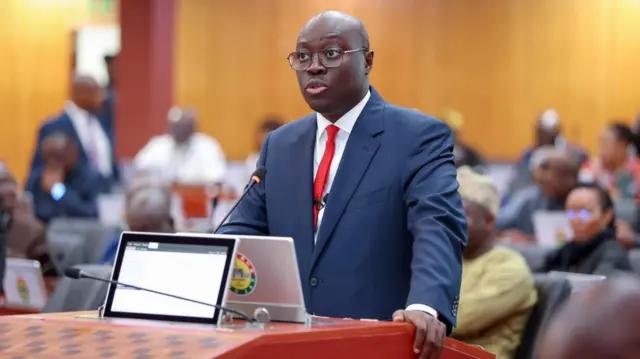Published
3 months agoon
By
Adubianews
The Centre for Policy Scrutiny (CPS) has cautioned that the government’s ambitious revenue targets in the 2026 Budget could pose risks to Ghana’s fiscal stability if the projections are not grounded in realistic economic conditions.
Speaking at a media briefing on Thursday, November 20, 2025, during its Review of the 2026 Budget, CPS noted that although the government has made progress in stabilising the economy, highlighted by lower inflation and falling interest rates, the revenue expectations outlined for 2026 appear overly optimistic.
CPS Executive Director, Dr. Adu Owusu Sarkodie, explained that revenue mobilisation has long been a major hurdle for Ghana. While acknowledging government efforts to curb expenditure and maintain macroeconomic balance, he stressed that the projected revenue figures will remain difficult to achieve without stronger tax compliance, better efficiency, and improved enforcement.
The think tank observed that the budget seeks a significant increase in tax revenue next year, banking on domestic tax growth and expanded collections within the informal sector. However, CPS warned that without crucial structural reforms, such as deeper digitalisation of tax systems and tighter controls on leakages, the targets could fall short. Such an outcome, it said, may force the government into further borrowing to close funding gaps.
According to the review, missing these revenue benchmarks could weaken the government’s ability to finance critical infrastructure, social interventions, and development programmes. It may also widen the fiscal deficit and place added pressure on public finances.
CPS urged the Ministry of Finance and the Ghana Revenue Authority (GRA) to align budget assumptions with verifiable economic indicators, strengthen revenue mobilisation measures, and enhance transparency in the collection process.
Despite its concerns, the organisation acknowledged positive elements of the 2026 budget, including commitments to disinflation, lower interest rates, infrastructure development, and job creation. But it cautioned that these gains could be undermined if revenue mobilisation strategies lack credibility.
Dr. Sarkodie concluded that while the budget provides a roadmap for accelerated recovery, its success depends on disciplined execution and realistic targets. “Ambitious goals only drive growth when backed by effective implementation; otherwise, they risk becoming sources of fiscal vulnerability,” he said.

























